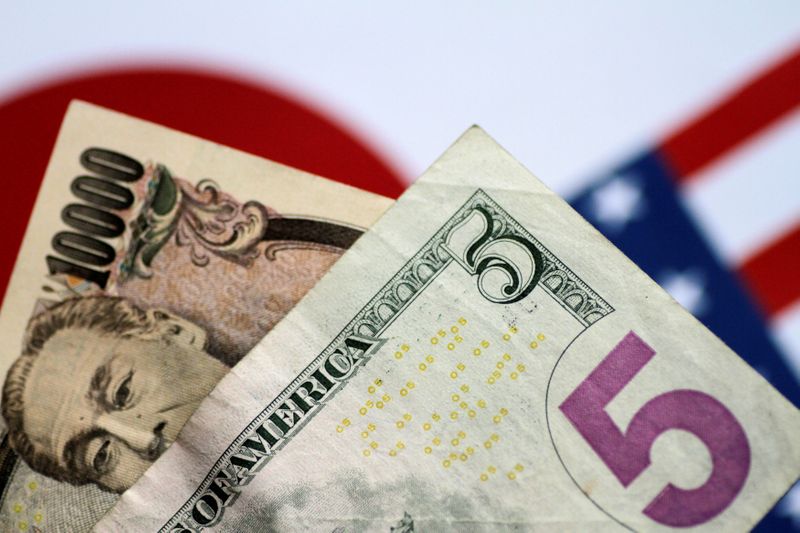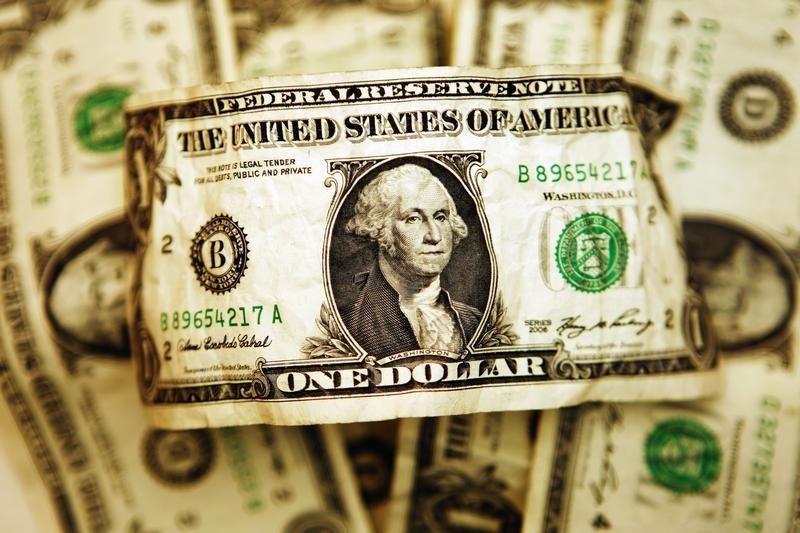By Stanley White
TOKYO (Reuters) - Japan, the biggest taker of cheap dollar funding from the U.S. Federal Reserve during the coronavirus pandemic, is weaning itself off that supply as it shies away from emergency swaps and returns to now sedate interbank markets.
When the Federal Reserve announced cheap dollar swap lines for global central banks in March as it tried to stave off a dollar funding crunch wrought by the pandemic, Japan was first out of the blocks.
From April through this week, the Bank of Japan was the biggest user of that cheap funding, taking up as much as $225 billion or more than half of what was on offer, as a banking sector addicted to investing and lending overseas struggled to get the dollars it needed from interbank markets.
That helped Japanese banks and funds to keep investing in higher-yielding U.S. stocks and global bond markets, as they have traditionally done, to beat the near-zero returns on offer at home.
Data this week, however, shows Japanese institutions are not keen to renew their three-month yen-for-dollars swap contracts with the Fed, which they access through the Bank of Japan.
The BOJ's outstanding dollar swaps with the New York Fed stood at $171.4 billion on June 18, which is down from a peak set in late May but still accounts for 61% of the Fed's total outstanding dollar swaps with major central banks.
(GRAPHIC - Outstanding dollar swaps with the New York Federal Reserve: https://tmsnrt.rs/37HWVNp)
Analysts expect Japan to steadily reduce its reliance on the Fed swap window, since interbank markets have normalised and banks would rather go there than borrow from what is deemed a central bank emergency window.
"Dollar borrowing costs have become cheaper, so Japanese banks would like to reduce unnecessary use of central bank swaps," said Osamu Takashima, head of G10 foreign exchange strategy at Citigroup (NYSE:C) Global Markets Japan.
"Too much reliance on central bank swap lines is not healthy. Of course, Japanese banks recognise this."
The cross-currency basis swap
In comparison, the Fed lowered the cost for dollar swaps with other central banks in March to 25 basis points over the overnight index swap rate
Japan's commercial banks pounced on the cheaper dollars to fund their dollar lending overseas, especially because some of these banks do not have enough dollar-denominated deposits to lend out, analysts said.
Some of these cheaper dollars also made their way to Japanese institutional investors, who regularly turn to commercial banks to secure dollars for overseas investment.
A spokesman for Sumitomo Mitsui Financial Group (T:8316) said the bank used the BOJ's dollar funding to meet its customers' foreign currency needs but did not use the money to invest on its own accounts.
Mizuho Financial Group (T:8411) and Mitsubishi UFJ Financial Group (T:8306) declined to comment.
In March, Japan's net investment in overseas equities surged to 1.8 trillion yen ($16.8 billion), the highest ever based on comparable finance ministry data going back to 2005, while investment in foreign bonds rose to an 18-month high of 3.5 trillion yen.
"I go to commercial banks to get my dollars, so it is certainly possible for the Fed's dollars to end up with Japanese who invest overseas," said one Japanese institutional investor, who declined to be named.

"I don't think this is a big problem. In terms of economic scale, our dollar funding needs are not that big."
